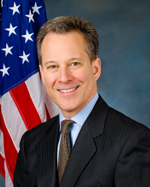 Notwithstanding investor rants about foreigners lacking brains and being unqualified to run a business, Airbnb continues its mission of being a global travel marketplace. The share economy company that enables people to stay in unique spaces in 33,000 cities across 192 countries recently won a legal battle in New York City. However, the war continues against The State of New York. The rights of neighbors of Airbnb hosts are also an interest completely ignored by this company who’s valuation has grown to more than $2.5 billion dollars.
Notwithstanding investor rants about foreigners lacking brains and being unqualified to run a business, Airbnb continues its mission of being a global travel marketplace. The share economy company that enables people to stay in unique spaces in 33,000 cities across 192 countries recently won a legal battle in New York City. However, the war continues against The State of New York. The rights of neighbors of Airbnb hosts are also an interest completely ignored by this company who’s valuation has grown to more than $2.5 billion dollars.
Victory In New York City
NYC Airbnb host Nigel Warren won his appeal against the New York City Environmental Control Board. Mr. Warren had originally been fined $2,400 for violating the Administrative Code of the City of New York. That city ordinance is similar to a state-wide law requiring a permanent occupant to remain on the premises when renting property for less than thirty days . On appeal, Airbnb submitted legal arguments on Mr. Warren’s behalf.

Nigel Warren, Airbnb Host
The six-page Appeal Decision and Order by the NYC Environmental Control Board is viewable on Scribd. The case was reversed on appeal only because Nigel Warren had a co-tenant when the fine was issued. Mr. Warren listed his room in the two-room apartment on Airbnb and was out of town for all several days of the guest’s stay. Nigel Warren never personally met his Airbnb guest, a female Russian tourist. The Russian tourist shared the apartment only with Mr. Warren’s co-tenant renting the other room.
None of the facts were ever disputed. The trial court that fined Mr. Warren reasoned the co-tenant was irrelevant because the Russian tourist was legally a stranger to Mr. Warren’s co-tenant. The appellate court concluded the city ordinance did not require any personal relationship between permanent resident and guest, only that a resident remain on the premises. The appellate court reversed Mr. Warren’s fine and dismissed the case.
War Continues Against State Of New York
The State of New York wants information about 15,000 Airbnb hosts. In 2011, the state enacted a law prohibiting apartment rentals for less than thirty days. Eric Schneiderman, New York Attorney General, sought from Airbnb information about hosts potentially violating that law. Airbnb has filed a motion with the New York Supreme Court to block the request.

Eric Schneiderman, New York Attorney General
I believe the State of New York will ultimately prevail on obtaining the information. New York’s law expressly prevents Airbnb from facilitating short-term apartment rentals in exchange for monetary compensation. The only exceptions are single-room rentals when the resident also remains on the premises.
Airbnb says the State’s request is “unreasonably broad.” Yet the company’s computer systems manage real-time reservations for 33,000 cities across 192 countries, collecting guest service fees and/or host service fees for every booking. Those same computer systems can easily produce a mere several pages of search results that includes three years of New York reservations for durations less than thirty days. Such information is reasonably necessary for the Attorney General to enforce the law.
Laws Intended Specifically To Protect The Safety Of Neighbors

New York City
“The question isn’t who is going to let me; it’s who is going to stop me.” Fellow blogger Paul Carr wrote that about laissez-faire capitalism, although the quote originates with Ayn Rand. Airbnb’s Public Policy Blog attempts to mischaracterize New York’s law as being intended for basically everybody except Airbnb. However, Forbes’ report about the New York dispute with Airbnb says the State’s investigation is in response to housing advocates and the same legislators that wrote the law.
All residents of an apartment building are entitled to peace, safety, and quiet enjoyment. That peace and safety means not having to constantly worry about unknown, potentially criminal or even dangerous, strangers that result from short-term subletting. Neighbors of Airbnb hosts receive no benefit, no guarantee, and constantly have to worry about strangers walking through their building. Some of those strangers can’t even be understood because of their strong foreign accents. Laws like those in New York exist for a reason.


![Apple iOS 7 iBeacon Is A Big Opportunity: A New Platform for Micro-Location Using Bluetooth LE [Video]](../wp-content/uploads/2013/10/ios7-sdk.jpg)
